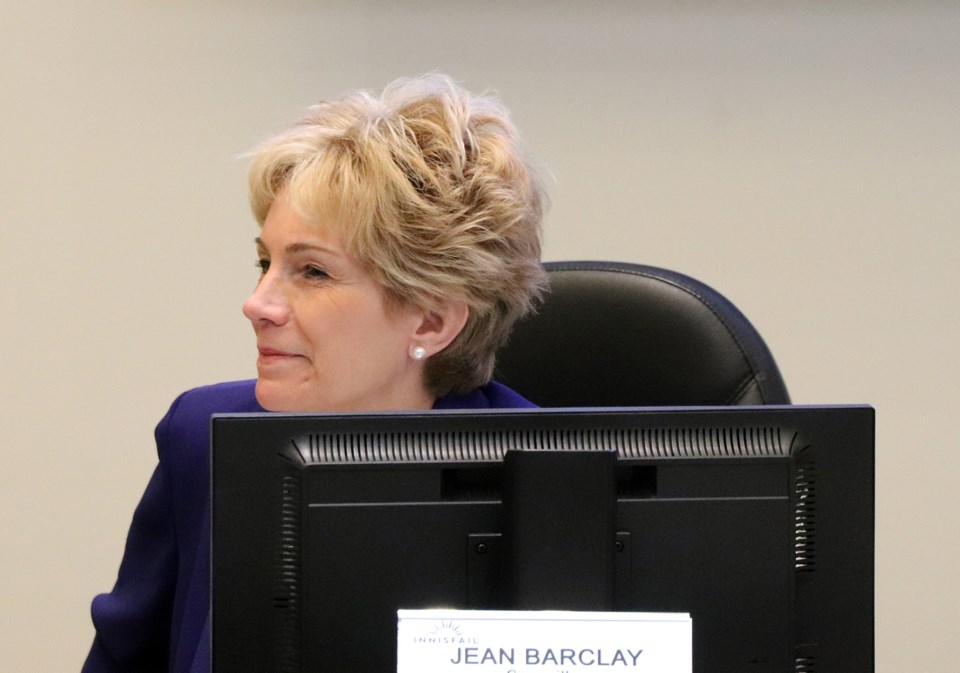INNISFAIL - With the UCP government seemingly inching closer to legislating political parties for municipal elections, Innisfail mayor Jean Barclay says the idea threatens to add unnecessary and unwanted polarization to an already overheated political climate.
Barclay returned to town last week after spending a day and a half on March 14 and 15 at the 2024 Spring Municipal Leaders' Caucus (MLC) in Edmonton.
The event, sponsored by Alberta Municipalities (ABMunis), was an opportunity for about 350 mayors, councillors and senior municipal administrators to talk about important issues facing their communities.
Municipal Affairs Minister Ric McIver engaged municipal officials at the conference about the idea of moving forward with legislation to allow municipal election candidates, and it was about as unpopular with local government officials as the provincial government’s lower infrastructure grant funding formula under the new Local Government Fiscal Framework (LGFF).
Barclay, who is already on record as a staunch opponent of having political parties for municipal elections, has doubled-down on her stance.
“I can tell you that it is very unpopular amongst Alberta Municipalities members as there was a resolution passed last fall and 95 per cent voted against that idea. It was obvious at this spring’s leaders caucus that sentiment has not changed,” said Barclay, adding a Postmedia-released Alberta government survey from Nov. 7 to Dec. 6 showed that more than 70 per cent of respondents were opposed to the idea.
The survey noted increased politicization at the local level was among the top reasons for the opposition.
“It's very disappointing to see and it seems to be directed potentially to large cities, Edmonton and Calgary. Both those councils were elected democratically. It's almost as if somebody is trying to diminish or remove voices that they don't agree with,” said Barclay, adding having the political parties for municipal elections initiative in place would only add to today’s polarization in politics.
“People need to understand it's not connected to the provincial parties. It would be a different party but you would know a slate of people align with such and such a party and this slate of people may align with this party. If you have five out of seven councillors that all align with a party chances are a block would be voting the same all the time. You no longer have representation.
“If you had a city council that all aligned differently than what the provincial government does, is there going to be the ability to work together or will that city be punished because they're not aligning with a provincial government or vice versa?” wondered Barclay.
“To me it’s another layer of polarization onto this. If it's not broke what are we trying to fix? I don't know what the problem is that we're trying to fix here.”
As for the conference as a whole the Innisfail mayor said it was a “positive” event; a chance for council colleagues to hear about what's going on in other municipalities.
“Everybody across this province is doing a good job and the best they can, and we're all dealing across the province with LGFF funding that's not meeting the mark,” said Barclay, adding the LGFF and the political parties for municipal elections issues were her two biggest takeaways from the conference.
“Premier (Danielle) Smith spoke and in addition to the LGFF, she started listing the hundreds of millions of dollars that are going to Calgary and Edmonton, and she also referenced education taxes,” said Barclay, noting there was an inference communities should be getting back what they're collecting for the province in education taxes. “I believe we collect around $3 million in education taxes and send that to the province.
“But we're getting $1.1 million back on LGFF,” added Barclay. “There seems to be a lot of money going to major centres but I know that midsize towns are certainly feeling the crunch with the lack of appropriate level of funding.”



